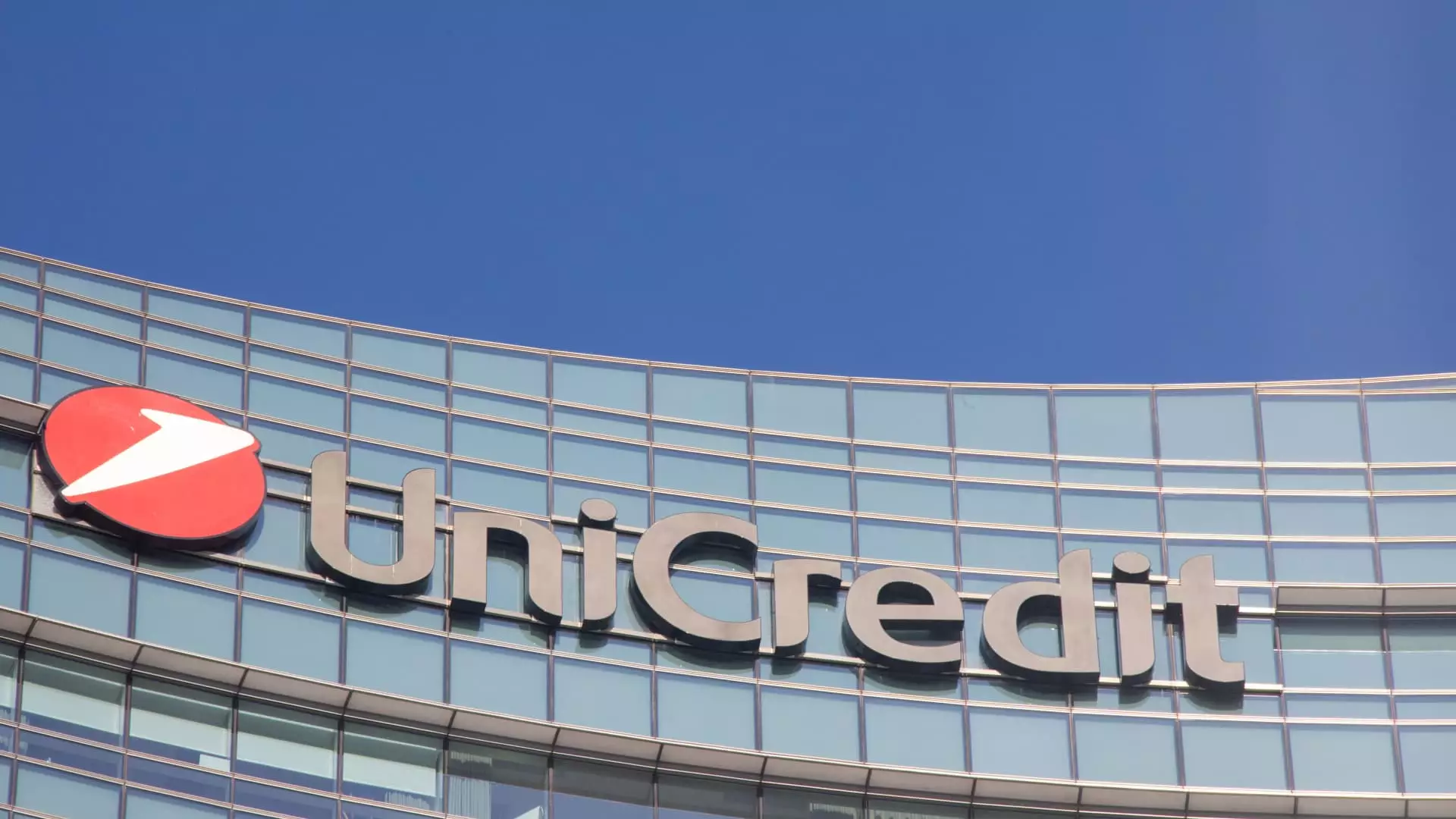In a dramatic shift within the Italian banking sector, UniCredit has proposed a significant acquisition of its domestic rival, Banco BPM, for approximately 10 billion euros (about $10.5 billion). This potential merger could reshape the landscape of Italy’s banking industry, following a series of mergers and acquisitions that have swept through Europe this year. Such deals highlight an ongoing trend of consolidation as banks seek to strengthen their positions in a competitive market. UniCredit’s offer includes a share price of 6.657 euros for Banco BPM, a modest premium compared to its closing price of 6.644 euros just before the announcement.
The strategic significance of this acquisition cannot be understated. If completed, it would unite two of the most prominent banking institutions in Italy, allowing UniCredit to enhance its influence as a formidable pan-European banking entity. The current economic environment and the challenges faced by many banks have driven institutions to consider consolidating resources and customer bases to remain viable.
Following the announcement, market reactions were telling. Shares of UniCredit experienced a decline of 1.7% early in the trading session, indicating investor apprehension or skepticism regarding the acquisition’s feasibility and its implications for the bank’s operational strategy. Conversely, Banco BPM saw a substantial surge in its share price, jumping by 5%. Such divergent movements signal varying perceptions of the merger’s potential benefits and risks among investors.
This merger proposition comes on the heels of UniCredit’s previously noted interest in expanding its reach in the German banking sector, particularly through its interactions with Commerzbank. Just last month, UniCredit increased its ownership stake in Commerzbank to approximately 21% and is aiming for an even larger holding, presenting a complex picture of its strategic direction.
Complications in Cross-Border Aspirations
While seeking to bolster its domestic portfolio through Banco BPM, UniCredit’s ongoing pursuit of Commerzbank appears more complicated. German Chancellor Olaf Scholz has voiced concerns about hostile takeovers, which adds further regulatory scrutiny to UniCredit’s ambitions. This indicates that navigating the complexities of cross-border banking mergers requires not only financial muscle but also significant political and regulatory goodwill.
Market analysts, such as Kian Abouhossein from JP Morgan, have suggested that UniCredit may be overreaching by attempting to initiate both mergers simultaneously. Given the potential operational challenges and regulatory considerations inherent in merging two large banking institutions, many view concurrent acquisitions as a precarious balance. If UniCredit is to proceed with both deals, it would require astute management capabilities and an in-depth understanding of the regulatory landscapes involved.
Despite the uncertainty surrounding its proposed acquisitions, UniCredit has demonstrated financial robustness. Recently reporting an 8% annual increase in quarterly net profit to 2.5 billion euros ($2.25 billion), the bank also revised its full-year profit forecast upward, suggesting operational strength that may bolster investor confidence. This financial performance presents a positive outlook that could support strategic growth moves.
However, with Banco BPM also engaging in its own acquisitions, such as the bid for Anima and purchasing a share in Monte dei Paschi di Siena, the competitive dynamics within the Italian banking industry remain fluid. These developments signal that while UniCredit’s pursuit of Banco BPM may represent a growth opportunity, it is essential for the bank to remain vigilant about the movements and strategies of its rivals.
The unfolding narrative of UniCredit’s acquisition bid for Banco BPM reflects the larger story of a banking industry ripe for consolidation amid a backdrop of economic uncertainties and operational challenges. While opportunities for growth exist, so too do significant risks, particularly in terms of regulatory hurdles and market reactions. As UniCredit endeavors to fortify its position both domestically and in Germany, stakeholders will closely monitor how these ambitious plans materialize in an ever-evolving European banking landscape. The next chapters for both UniCredit and Banco BPM will likely set critical precedents for future strategies within Italy’s financial sector and beyond.

